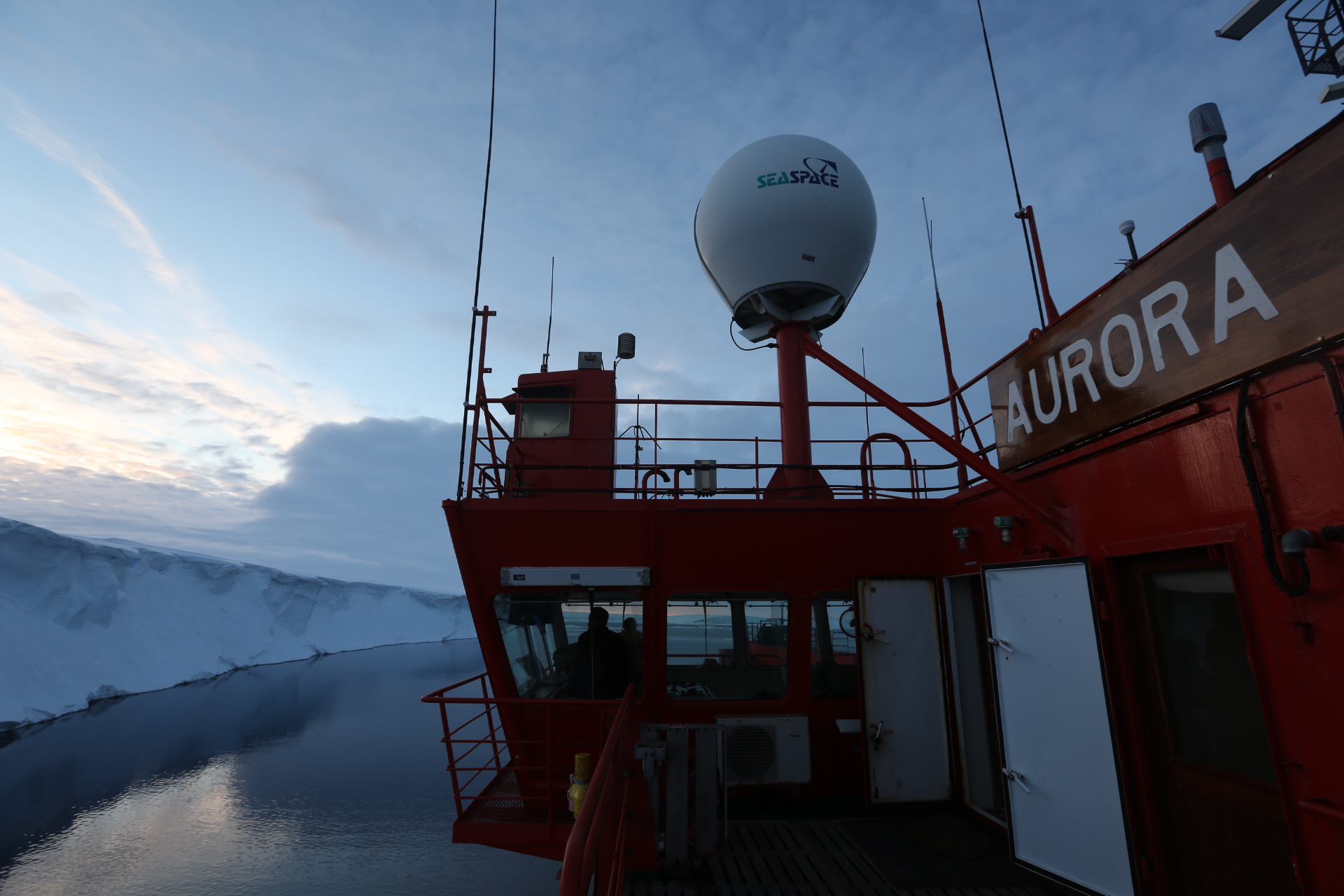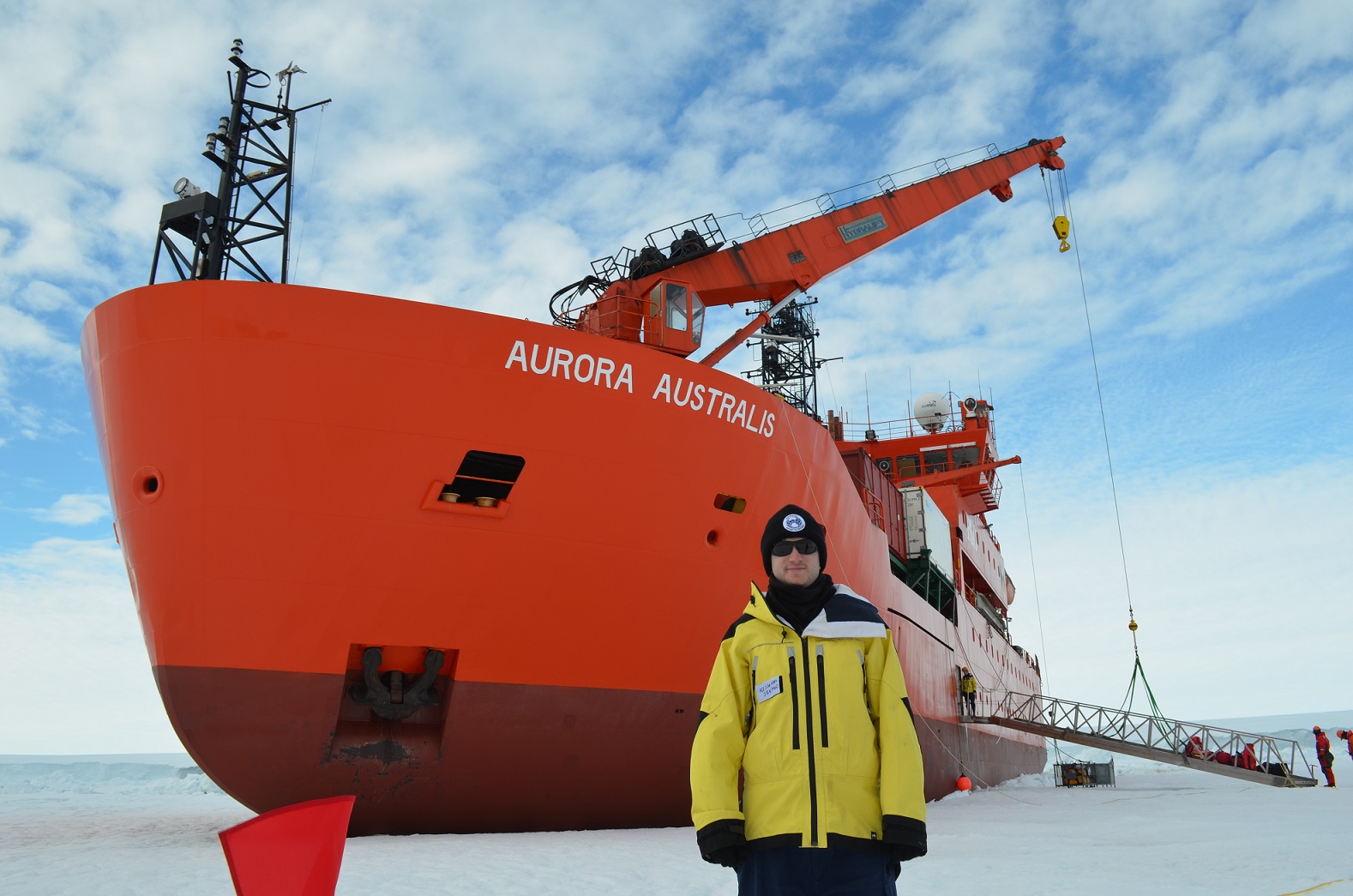
University of Tasmania alumnus, Dr Alessandro Silvano has won the prestigious 2020 Australian Meteorological and Oceanographic Society (AMOS) Uwe Radok Award for the best PhD thesis in the fields of meteorology, oceanography, glaciology or climatology awarded in Australia.
Dr Silvano recently completed his PhD at the Institute for Marine and Antarctic Studies (IMAS) at the University of Tasmania, and is now a Research Fellow at the University of Southampton in the UK. His PhD research at IMAS focused on the ocean-ice shelf interaction at the Totten Glacier in East Antarctica.
“By analysing data from a range of oceanography instruments and simulations, I was able to show that this part of East Antarctica is exposed to warm ocean waters, which explains the rapid basal melt rates inferred from satellite data,” Dr Silvano said.
“My study suggests that increased glacial meltwater input in a warming climate will both reduce Antarctic Bottom Water formation and trigger increased mass loss from the Antarctic Ice Sheet, with consequences for the global overturning circulation and sea level rise.
“I’m currently working on ice-ocean interaction in West Antarctica, to see if processes similar to those I observed in East Antarctica also occur on the other side of the continent.”
Dr Silvano said he was pleased his research has been recognised by AMOS and is grateful for the opportunity he had at IMAS and nearby CSIRO to enhance his skills as an observational environmental scientist.
“IMAS was the perfect environment to pursue my PhD,” said Dr Silvano, who studied under the supervision of IMAS Associate Professor Guy Williams, and CSIRO’s Dr Steve Rintoul and Dr Beatriz Peña-Molino.

“During my studies, I joined an oceanographic cruise in Antarctica and attended a fieldwork course in Japan to study sea ice – and both of these experiences have strengthened my scientific growth.
“IMAS really is unique, with world-class scientists, PhD students working on complementary topics, and friendly staff, all in an exceptional location at the gateway to Antarctica.
“Together, IMAS and CSIRO create an inclusive and friendly research environment in Hobart, where you can build relationships and have a sense of community that’s hard to find anywhere else on the planet.”
Dr Silvano’s final paper was published in Science Advances, and is one of five published during his PhD.
“As well as recognising my PhD work and the world-class research that comes out of IMAS and Tasmania, I hope winning this award will help to drive more research effort into understanding the remote and globally-relevant region of East Antarctica,” Dr Silvano said.
Images:
Published 15 December 2020